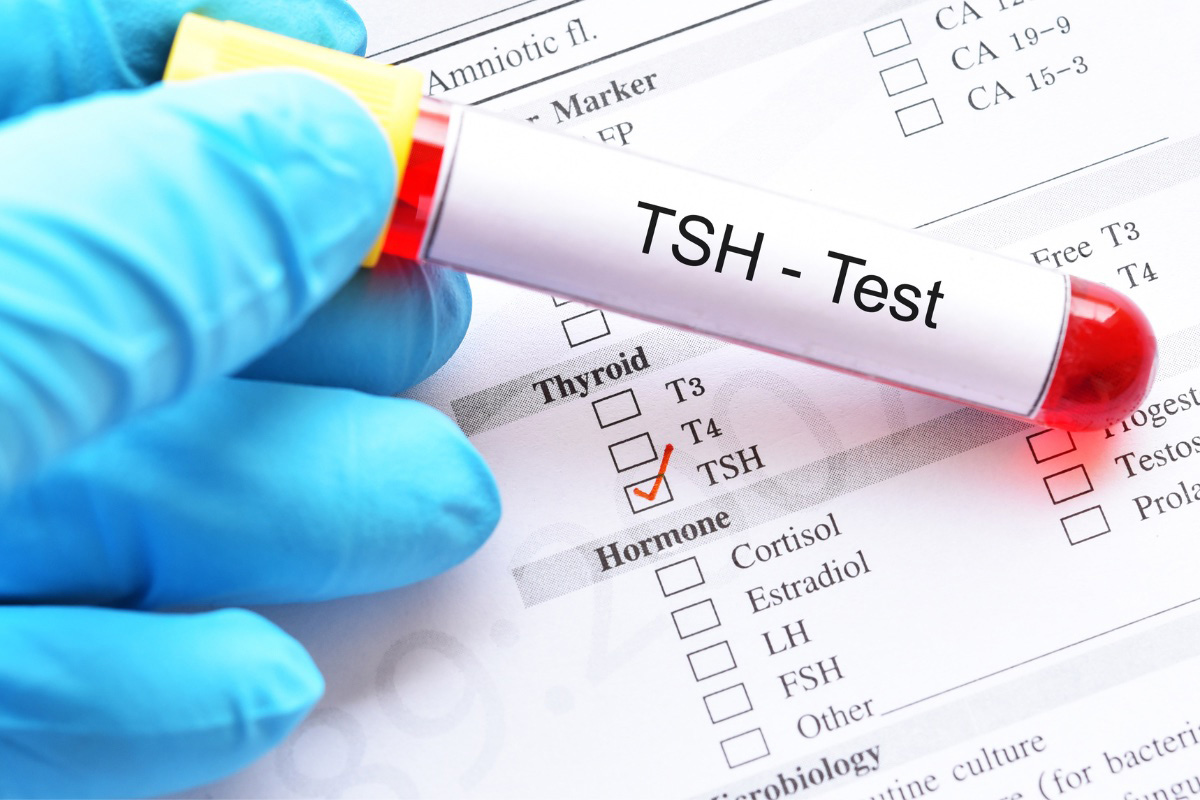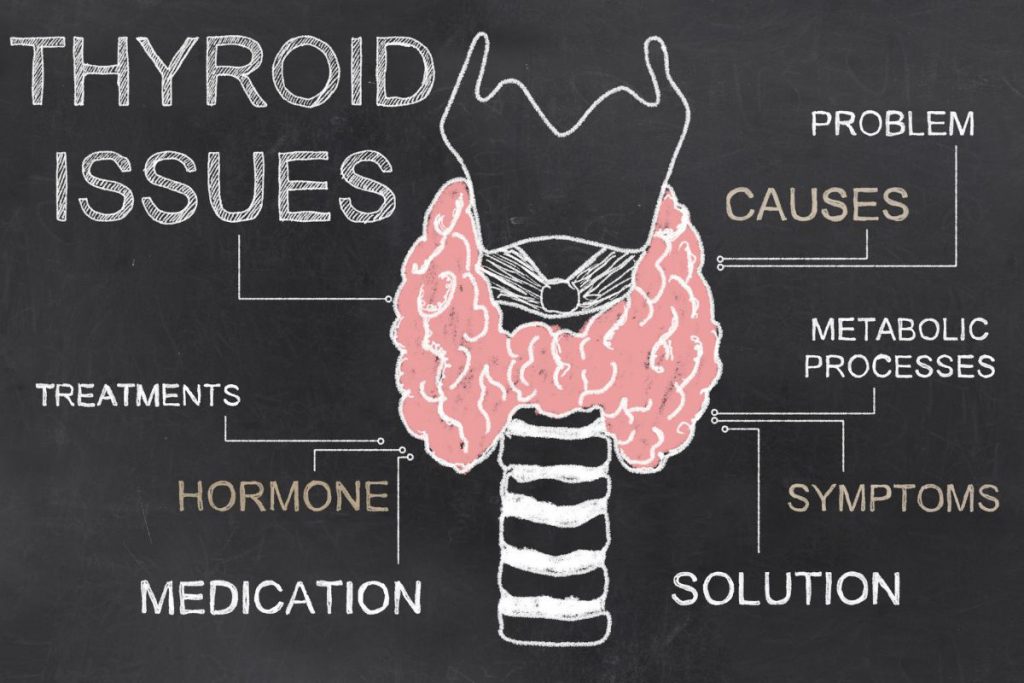
Menopause and Perimenopause – What’s the Thyroid connection?
Fatigue and weight gain can be common symptoms during both the perimenopause transition and in people with low thyroid function (hypothyroid and or Hashimoto’s). Did you know that the hormonal changes that occur in this life stage can be a trigger for thyroid dysfunction.
If you have trouble getting up in the morning but can’t sleep at night, you’re probably wondering what you can do to get a good night’s sleep. This can be especially true if you have thyroid problems or are in the perimenopause or menopause stage of life.
With all the hormonal changes in your body, trying to solve this issue can be complicated. However, there are natural ways to feel less exhausted, improve thyroid function, and smooth the bumps of the perimenopause transition.

Your thyroid produces hormones that help control energy production and metabolism throughout your body. If you have low thyroid function whether that be overt hypothyroidism or is even just a sluggish thyroid with subclinical hypothyroidism you may be experiencing issues with fatigue and unwanted weight gain.
Not really. Your doctor may check your thyroid stimulating hormone or TSH. This hormone controls your thyroid and the quantity of thyroid hormones it produces. A low TSH means your body is producing enough thyroid hormones, and a higher number means your body is calling out for more.
Of the many hormones your thyroid produces, two of the most interesting ones are T4 and T3. These hormones are most directly related to energy production and metabolism.
These hormones depend a lot on various other nutrients. For example, your thyroid needs iodine, selenium, iron, tyrosine vitamin D, vitamin A and zinc. Some of these nutrients are needed to produce T4 and some are needed for the conversion of T4 into T3. T4 can be thought of as the starting material and is sometimes referred to as the inactive thyroid hormone, like a battery it is ready to turn into T3 at a moment’s notice. When the thyroid is functioning well this conversion happens at a ratio of 3:1. T3 is called the active thyroid hormone as it is T3 that enters the cells and directly influences energy production and metabolism.
So, if you are deficient in any of these nutrients (iodine, selenium, iron, tyrosine vitamin D, vitamin A and zinc, your body has difficulty producing and activating thyroid hormones.
Nutrients are not the only influencers. Other hormones, such as oestrogen (sex hormone) and cortisol (stress hormone), significantly influence the conversion of inactive T4 to active T3. This leads us to beginning to understand how the hormonal fluctuations of perimenopause combined with life stressors can trigger thyroid dysfunction in this life stage. The impact on both energy levels and weight management can be very frustrating. You may having been thinking that the blame lies solely with the perimenopause transition however hopefully you can now see that considering the function of your thyroid is also very important and vice versa. if you are in perimenopause or menopause and are seeking to sort your thyroid issues out you want to make sure you are addressing the hormonal changes that are occurring at the same time.
Stress is another significant factor, and the increased production of the hormone cortisol can have a negative correlation with thyroid function and the severity of perimenopausal symptoms. Busy women tend to have a lot of stressors impacting on their health which can come in many shapes and sizes depending on each person’s life circumstances. Menopause and perimenopause can be a particularly stressful time as a woman’s body can experience severe hormonal fluctuations. Hot flushes, night sweats, cycle changes, trouble sleeping, and unexpected weight gain can all be signs that your body is entering the perimenopause stage and as discussed this can be a trigger for thyroid dysfunction which can further impact on your ability to have a good metabolic rate and energy production.
Your body needs the proper nutrition and lifestyle to support both healthy thyroid function and to ease the transition into menopause.
Fortunately, there are some simple things you can do with your nutrition and lifestyle choices that can reduce the impact of stress on your body and start to lay a good foundation to ease unwanted symptoms.
An oldie but a goodie – Drink plenty of clean water and eat your fruits and vegetables. This can seem too basic however you might be surprised how many people are living their lives in a state of profound dehydration. Your body needs water and nutrients to function and a consistent commitment to drinking water as your main drink and eating a variety of whole read food can go a long way towards enhancing your wellbeing.
Green leafy vegetables are a good example as they are rich in many of the nutrients we need for both managing stress (magnesium) and for optimal thyroid function (zinc and selenium). Seaweed is an interesting example as it is particularly rich in iodine which as discussed earlier is a key nutrient for the thyroid.
Managing stress and reducing cortisol levels can be helped by the right form of exercise, relaxation techniques including mediation, diaphragmatic breathing and spending time in nature and or with friends and family that bring you joy.
Everyone is unique and what works for one person maybe different to what works for the next so seeing a qualified healthcare professional is always best.
Make an appointment by clicking on the link below.
New Beginnings Jumpstart
A 6 week guided program for women navigating perimenopause and beyond
Modules include:
2 levels available – A DIY self-paced and a VIP with Naturopathic coaching sessions, customised herbal medicine formula and key supplements.
Join the waitlist now.